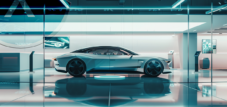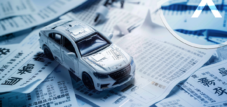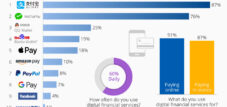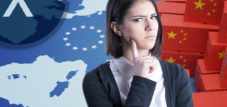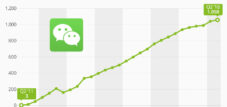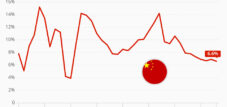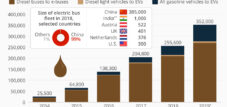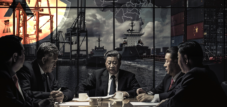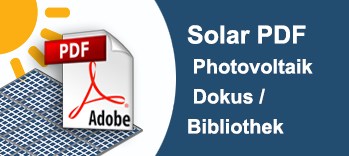Xpert.Digital criticism of Asia experts: China's lead in electromobility is not just due to the lack of innovation among EU car manufacturers
Language selection 📢
Published on: October 5, 2024 / update from: October 5, 2024 - Author: Konrad Wolfenstein

China's lead in electromobility is not just due to the lack of innovation among EU car manufacturers - Image: Xpert.Digital
🚗🔋 China's lead in electromobility: challenges and opportunities for Europe
🏭 Innovation crisis: Europe's auto industry compared to China 🇨🇳
China's lead in electromobility is currently the focus of heated discussions. Karlheinz Zuerl, CEO of the German Technology & Engineering Corporation (GTEC) , has a clear opinion on this: The crisis at Volkswagen and other European car manufacturers is largely of their own making. He emphasizes that European industry has not been innovative enough compared to China for many years, and not just in the automotive sector.
Zuerl cites concrete examples from the Chinese automotive industry to support his thesis. Manufacturers such as Li Auto and Leapmotor have achieved enormous success with their range extender concepts. These vehicles, known as EREVs (Electrical Range Extender Vehicles) or REEVs (Range-Extender Electric Vehicles), use an electric motor to power them like conventional electric cars. However, they also have a compact combustion engine that charges the battery while driving, increasing the range by several hundred kilometers. This relieves consumers of range anxiety and makes the vehicles usable even in regions with little charging infrastructure.
🚌 🪫 Insights into China's innovation: battery replacement and range 🌍
Another example of China's innovative strength is Nio's battery replacement concept. The company has set up a network of changing stations where an almost empty battery can be exchanged for a fully charged one within a few minutes. Long charging times are now a thing of the past, which significantly increases convenience for the consumer.
BYD has set another milestone with the introduction of the Blade battery, which uses lithium iron phosphate instead of the usual nickel-cobalt-manganese. This technology is considered particularly safe, is less susceptible to thermal outliers and is characterized by low production costs. The flat design also allows for more efficient storage in the vehicle.
🤖 Autonomous Driving: China's Technological Advances 🤖
In the area of autonomous driving, Zuerl highlights XPeng's XPilot system, which is considered superior to Tesla's Autopilot (Full Self-Driving) in inner-city traffic. Xiaomi is also bringing a breath of fresh air into the industry with the MS11 electric car. Here the driver can design the cockpit individually by subsequently attaching controls flexibly using magnets - a concept that is reminiscent of Apple's MagSafe technology.
Zuerl criticizes the fact that European car manufacturers have limited themselves in recent years to developing a platform for electric vehicles in order to be able to keep up with Tesla. The crown of innovation is the oversized 56-inch screen in the Mercedes flagship, which seems rather modest compared to the Chinese advances.
💰 Subsidies and market distortions: China's strategies 🏭
But despite all the justified criticism of the European automotive industry, Zuerl overlooks one crucial factor: China's lead in electromobility is not just the result of superior innovative strength. The Chinese government massively subsidizes its domestic companies in order to give them a market advantage and weaken international competition. These subsidies distort competition and are disproportionate to fair supranational competition.
Government support allows Chinese companies to offer products at prices that European manufacturers find difficult to compete with. This not only affects manufacturing costs, but also investments in research and development. While European companies are often bound by strict budget constraints and return expectations, Chinese companies can experiment and innovate with almost unlimited resources.
In addition, Chinese companies benefit from a huge domestic market that allows them to test and optimize new technologies on a large scale. The government is promoting the expansion of the charging infrastructure and creating incentives for the purchase of electric vehicles, which increases acceptance among the population.
📈 📊 Global supply chains: China's unique selling points 🏗️
Another aspect is access to rare earths and raw materials that are essential for the production of batteries and electric motors. In recent years, China has secured strategically important positions in the global supply chain, giving domestic manufacturers advantages.
Given these framework conditions, it is an enormous challenge for European car manufacturers to compete. Not only do they have to catch up technologically, but they also have to find ways to keep up with the subsidized prices of their Chinese competitors.
🌍 Europe and China: A necessary change of perspective for the future 🔄
Zuerl advises the Western economy to fundamentally rethink its approach to China. Instead of viewing the People's Republic primarily as a sales market, Western manufacturers should be inspired by China's innovative spirit. He argues that the superiority of the Western industrial world has melted away in many areas. The automotive industry and mechanical engineering are examples of this. Many politicians and executives in the West did not yet want to accept this reversal. But the way out is not to deny the facts, but to enter into a new relationship with China's innovative and economic power. The Chinese had been learning from the West for decades, but now the situation has reversed.
However, this view falls short if one ignores the political and economic framework conditions. An uncritical acceptance of the Chinese models could lead to increased dependency in the long term and undermine European standards. It is important to recognize and promote your own strengths instead of just adapting Chinese concepts.
🏆💡 Quality and safety: Europe's strengths in electromobility 🚙
European manufacturers could return to their traditional core competencies: quality, safety and sustainability. You have the opportunity to develop your own innovative solutions that meet the high demands of European consumers by investing in research and development. They could also benefit from closer cooperation within Europe in order to exploit synergies and appear stronger together.
It should also be borne in mind that government subsidies are regulated differently in Europe and cannot be used to the same extent as in China. Therefore, alternative strategies must be found to remain competitive. This could be done through tax incentives, research and development support programs or by creating a fair trading environment.
However, Karlheinz Zuerl's criticism of the European automotive industry is still partially justified. There is certainly some catching up to do in terms of innovation and adaptability. However, when assessing China's lead in electromobility, the role of government subsidies and market distortions should also be taken into account. Fair competition is only possible if the same conditions apply to all market participants.
It is now up to European manufacturers and politicians to take appropriate measures to ensure competitiveness. This requires courage to change, investment in future technologies and a clear strategy for how Europe can maintain its position in the global automotive industry.
📣 Similar topics
- 🚗 Europe's innovation bottleneck in the race to electromobility
- 👍 Electric pioneers from China: The secrets of success
- 🌐 Chinese subsidies: An unfair competitive advantage?
- 📉 Europe's car manufacturers in crisis: A wake-up call to the industry
- 🔋 Removable batteries and electromobility: Nio's innovative strength
- 🤖 Autonomous Revolution: China's advances in vehicle technology
- 💰 Doing business under unequal conditions: The influence of state subsidies
- 🚀 Catching up into the future: Strategies for Europe's automotive industry
- 🇪🇺 Traditional strengths of European manufacturers: opportunities and challenges
- 🔄 Change in global competition: Europe's answer to China's lead
#️⃣ Hashtags:
#Innovation #Electromobility #Competition #Subsidies #Automotive industry
🔄📈 B2B trading platforms support – strategic planning and support for exports and the global economy with Xpert.Digital 💡
Business-to-business (B2B) trading platforms have become a critical part of global trade dynamics and thus a driving force for exports and global economic development. These platforms offer significant benefits to companies of all sizes, particularly SMEs – small and medium-sized businesses – which are often considered the backbone of the German economy. In a world where digital technologies are becoming increasingly prominent, the ability to adapt and integrate is crucial to success in global competition.
More about it here:
💭📦 Why actually? Duty-free imports from China lead to distortions of competition and tax losses - and then there are safety and quality concerns

Duty-free imports from China lead to distortions of competition and tax losses - Image: Xpert.Digital
In recent years, the rise of duty-free imports from China has caused a stir, particularly in Europe and the US. At first glance, duty-free imports seem to be a boon for consumers as they offer a wide range of affordable products. But a closer look reveals significant disadvantages that go far beyond the supposed advantages. These imports not only lead to massive distortions of competition, but also to significant tax losses and threats to the safety and quality of the products that enter the market.
More about it here:
We are there for you - advice - planning - implementation - project management
☑️ SME support in strategy, consulting, planning and implementation
☑️ Creation or realignment of the digital strategy and digitalization
☑️ Expansion and optimization of international sales processes
☑️ Global & Digital B2B trading platforms
☑️ Pioneer Business Development
I would be happy to serve as your personal advisor.
You can contact me by filling out the contact form below or simply call me on +49 89 89 674 804 (Munich) .
I'm looking forward to our joint project.
Xpert.Digital - Konrad Wolfenstein
Xpert.Digital is a hub for industry with a focus on digitalization, mechanical engineering, logistics/intralogistics and photovoltaics.
With our 360° business development solution, we support well-known companies from new business to after sales.
Market intelligence, smarketing, marketing automation, content development, PR, mail campaigns, personalized social media and lead nurturing are part of our digital tools.
You can find out more at: www.xpert.digital - www.xpert.solar - www.xpert.plus







